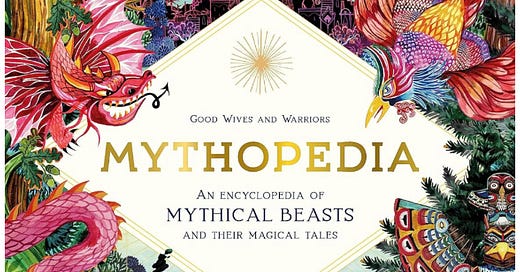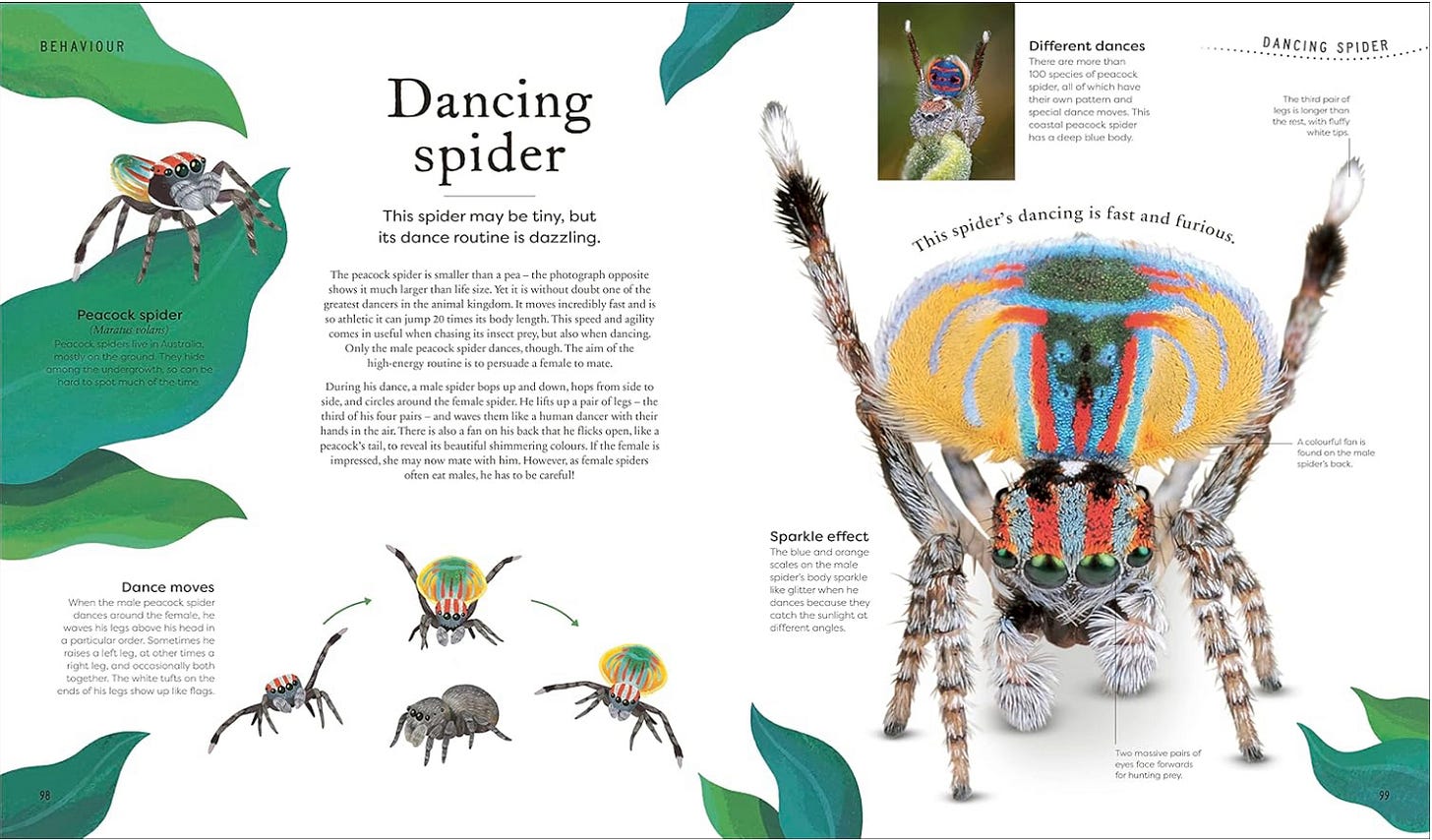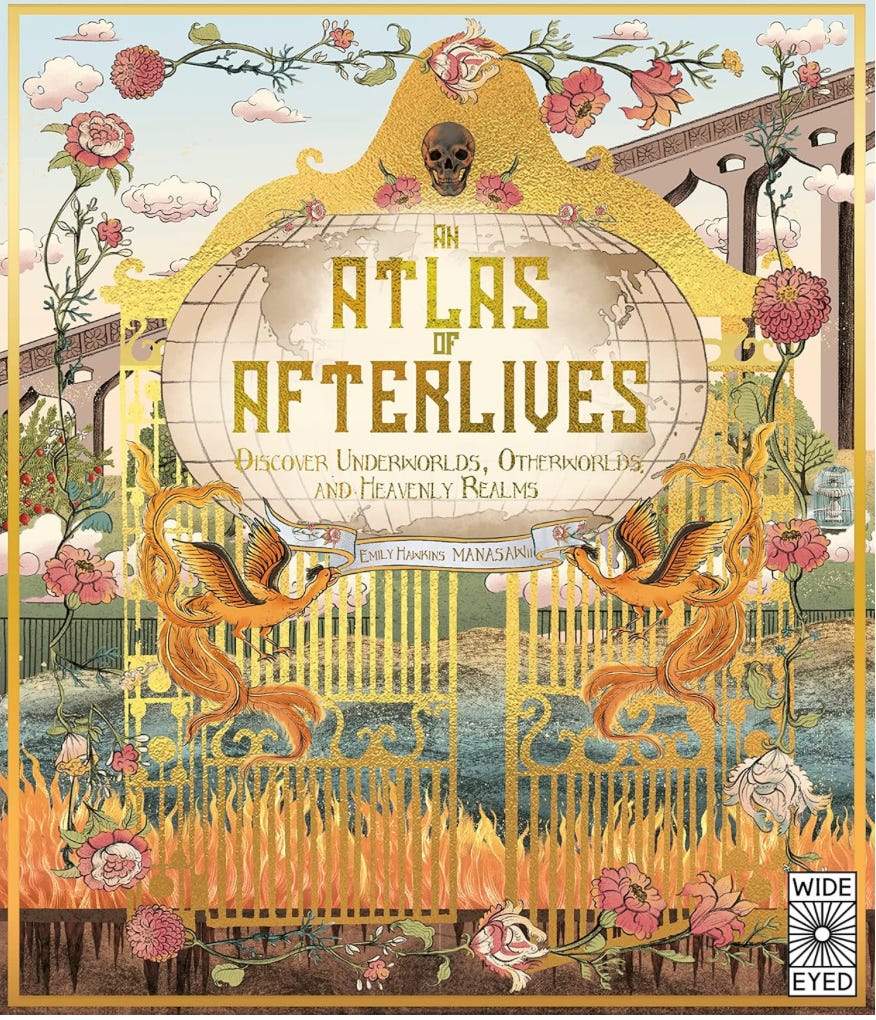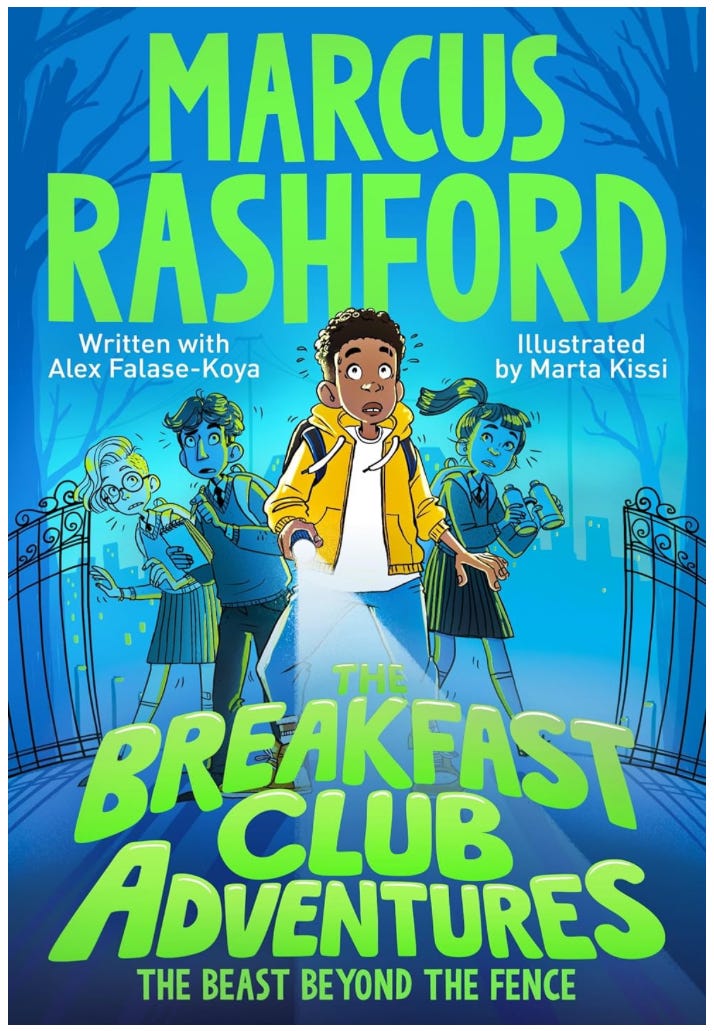Last night I lay awake for several hours thinking about things like, should Nazis be allowed on Substack, and is all reading good reading? Obviously critical things to consider at 3am.
So today’s homeschooling isn’t going quite according to plan. Instead I’m going to share some new books we’ve been enjoying. Tomorrow I’m looking forward to sharing a ‘How We Homeschooled Today’ guest post by
, and and I will be sharing information about the Educating Otherwise UnConference, taking place in London on 27th April. To get the UnConference post, make sure you’re signed up to the newsletter:Three new books
Mythopedia: An Encyclopedia of Mythical Beasts and Their Magical Tales
This was recommended to us by a homeschooling friend (thank you, P!), and I knew it was tailor-made for my myth-mad son. The illustrations are beautiful, and the myths come from all over the world—a good way to branch out from Greek or Norse myths if you’ve exhausted all the stories from those cultures! Also a nice way to incorporate some geography. Amazon says age 9-12, but my 6 year old is enjoying it. For younger children be aware that obviously some of the creatures are pretty scary!
We’ve been enjoying this as a read-aloud recently. I like that it gives bite-size pieces of information about a range of subjects, enough to be interesting and informative without getting bogged down in too much detail. We read about Mexico’s Cave of the Crystals, which has gypsum crystals the size of a bus. (We also read about this in National Geographic’s Ultimate Rock-Opedia, but there was a bit too much detail on crystal formation for our current level of expertise!) Also good for geography. Amazon says age 7-11, but my 6 year old is enjoying it and I think 5 year olds would also like it as a read-aloud.
An Atlas of Afterlives: Discover Underworlds, Otherworlds and Heavenly Realms
Like Mythopedia, this is organised by continent. It explores what different cultures have thought about life after death, so has some overlap with mythology. There are topics you may well know about—Aztecs, the Terracotta Army, Egyptian afterlife, Valhalla, Hades—but many that are completely new to me: Hedu, the Yanomami Heaven, the Zulu Underworld, the Hawaiian Land of the Dead. We don’t (yet…) own this book, I’ve just been poring over it in bookshops, so I can’t give you a comprehensive review. Amazon says 9-12, obviously the subject matter might be a bit much for some but I know lots of children love this sort of thing!
Is all reading good reading?
One of my children is currently reading The Lion, The Witch, and The Wardrobe. The other child is reading Marcus Rashford’s Breakfast Club series. For non-UK readers, Marcus Rashford is a famous footballer who in his spare time campaigns for the government to provide free school meals for underprivileged children. His books are clearly intended to encourage literacy in children who might not otherwise be keen on books, and they also make a point of including children from a wide range of backgrounds. All to the good.
I have a soft spot in my heart for Marcus Rashford, who is clearly a kind and well-intentioned man who wants to make a difference. Equally, I am a snob and instinctively value old stuff over new stuff (in all things: books, buildings, art, ideas). I’m not saying these are good qualities. Clearly, the primary selling-point of the Breakfast Club books is that a footballer’s name is splashed over one third of the cover, and as an old-fashioned snob I naturally prefer to see a child reading Narnia than Marcus Rashford. But I also know that few people can read an unrelieved diet of literary classics—I’m still enjoying Bleak House, but I raced through a Curtis Sittenfeld novel in 24 hours last week. There’s more to life than E Nesbit… I think.
But I wonder (or at 3am, panic) that too much of the easy reads renders the classic literature too challenging. The harder vocabulary, longer sentences, and delayed gratification of a really good book can seem like too much effort after all the sugar sprinkles of the kind of books that come in series of 25. This isn’t just reserved for new books or children’s books—I think Enid Blyton and Agatha Christie probably fall into the sugar sprinkles category.
So, how do you feel about your child reading easy, pacy reads, potentially ‘written by’ celebrities. How do you balance them for your child, and how do you balance them for yourself? Please share in the Comments.
and might have some wise words on this too.Thanks for reading. If you’re not subscribed, sign up for free and never miss a post.








If I have to make a giant, blanket statement, then: all reading is good reading. But I think we, as caregivers, balance the sprinkles -- in our children's lives *and* our own -- by adding in more challenging reading wherever and however we can. I don't expect my 9 and 7yo to seek out harder books, nor be mature enough to have the intrinsic motivation that requires, but I can read those books aloud. I can check out those books on audio from the library and include them in the stack I leave for my kids in their room. I can read both fun and funny *and* more challenging poetry at breakfast.
I honestly don't think it's either/or -- and let me be super clear, *nor do I think it should be.* Older books are not inherently better than newer books -- there are some absolutely terrible old books, and there are some absolutely excellent new books -- and the sooner we all get over that narrow mindset, the better. It's both/and, and we're lucky to have so much variety and choice.
I don’t love the phrase “all reading is good reading.” To me it’s like saying “all good is good food”; a steady diet of nothing but fluffy books untimely isn’t great (though I admit this is perhaps more true for adults than for learning readers).
That said, based on my own reading growing up (and my experience as a high school and university teacher), I’d say a balance is plenty healthy. I read Babysitters Club and Nancy Drew, plowed through a million fluffy books (and, as a teen, Christian romances, ugh), but also had a steady drip of classics, and now I’m doing a PhD in 18th century English literature. As much as I cringe to think of my own child reading whatever modern mega-series catches his eye (once he can read, he’s one and a half), I think he’ll be okay.
What we are seeing in schools is a lack of attention coupled with an unfamiliarity with complex language and sentence structure. But even reluctant readers can get that from read-alouds and audiobooks.